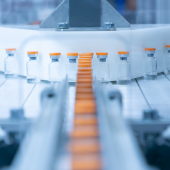For an efficient and sustainable production
Increasingly less predictable demand, increasingly “green” products requested by the market and recurring supply chain issues are forcing manufacturing companies to review their production systems with various strategies, technologies and business models in order to rapidly adapt to the market while optimizing costs and reducing environmental impact.
Maurizio Cacciamani
Companies require integrated solutions for more efficient, flexible and, most of all, sustainable quality productions, but also services such as servitisation, such as, for example, those offered by two Japanese automation leaders Mitsubishi Electric and Omron.
Digitalisation requires a lot of energy and open exchange between departments that can bring different know-how but also different needs. The results in Gewiss - explains Laura Onorati – have been combatting waste with optimised packaging, the emergence of innovative ideas, and the development of new skills and new solutions which are constantly updated.
Thinking about the service economy, servitisation, according to Mauro Paretti (Syncron), is a tool that creates a long-term relationship between supplier and customer, as it leads to the sharing of objectives. To do this, it’s necessary to have an integrated, transparent and versatile platform across the entire supply chain on which to converge reliable price, availability and location data: all this is a prerequisite for operating in sectors such as packaging.
The value of the date is fundamental but, for Iacopo Carreras (ThinkIN), there’s a discrepancy between planning data and the data obtained in production. The gap can be bridged thanks to IoT, which makes it possible to control in real time what is happening in production even from another location. The data collected is then measured and processed, thanks to the help of IA.
Sustainability plays an important role; it’s one of the factors taken into consideration by banks in granting financing to companies that now have to comply with established sustainability KPIs: this, for Veronica Bovo, (Hind) means in concrete creating a corporate culture not only within the company but also with regards to its customers who often, being SMEs, have problems in managing sustainability.
According to Anna De Carolis (Milan Polytechnic), to be sustainable, products need to be designed anticipating the future lives for them, for example using waste as raw materials for other sectors.
NOTE: This article has been written drawing freely from the "Verso una produzione efficiente e sostenibile: il ruolo dell’innovazione, della robotica e dei servizi" (Towards an efficient and sustainable production: the role of innovation, robotics and services) round table coordinated by Mauro Bellini, (ESG 360) held at the Industry4.0 360SummIT Forum.




















